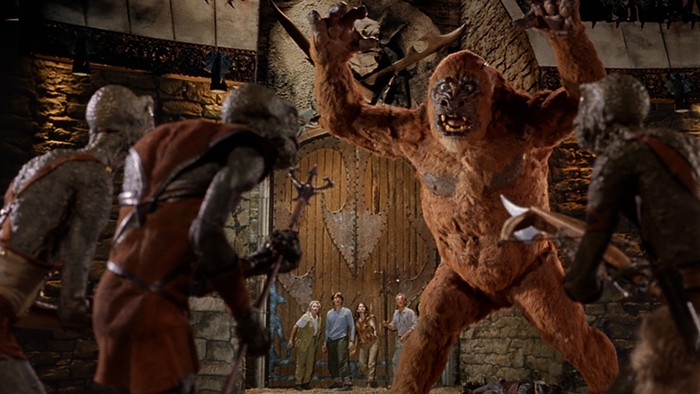There is nothing quite like the thrill of seeing a filmmaker gain widespread acclaim for a movie and then following that project up with something completely different in almost every way. Just when you think you have them pinned down, they upend all your expectations. Ryûsuke Hamaguchi, who recently made the Oscar-winning Drive My Car, has done just that with the ecological parable Evil Does Not Exist. It’s a film both meditative and menacing, with extended shots of characters filling up containers from a stream that builds to one of the most eerie endings you’ll ever see. There’s nothing else out there right now that’s quite like it and, for those who can get on its wavelength, it’s one of the year’s best.
The plot, for what pointedly little it matters, centers on Takumi (Hitoshi Omika). He is the first character we meet, but he is by no means its protagonist as the film doesn't really have one. As we follow him through his day, we get to know his daughter Hana (Ryo Nishikawa) who accompanies him on tranquil walks through the woods. However, whatever peace there is to be found in their home of Mizubiki, a small village located a few hours outside of Tokyo, is about to be disrupted.
Initially, this interruption comes from a company known as Playmode, which intends to build a place for "glamping" without any concern about the impact this could have on the environment. Soon, we see this disruption is only one part of the many ways the relationship we share with the natural world has fallen out of balance.
Even as the community tries to speak up at a meeting with their urgent concerns about the development, it becomes clear their objections will not stop it. It’s as if they are stepping in front of a speeding train that is built for one thing and one thing only: the pursuit of profit at all costs. The scene plays out for several minutes, capturing that agonizing feeling of how comments from the public can often be treated as a formality rather than something actually worth listening to.
Critically, the real tension of the film then comes when we pull back to observe the more complicated questions surrounding the village’s relationship with nature. As one resident remarks, most of them, too, were outsiders at one point and have altered the natural world by being there. This isn’t done to create a false equivalency between the locals and the company. Rather, it exists to cut deeper, to challenge us to reflect on whether small acts of resistance are sufficient.
All of this is established with a refreshing subtlety that, for some, could easily be mistaken for distance. Indeed, just when we think we are getting close to a certain character, the film pulls away to show the broader world around them. That Evil Does Not Exist originally began as a silent short makes sense—there are plenty of striking visual moments and a spectacular score by Eiko Ishibashi. At the same time, it also feels like something uniquely sublime and sinister as a full feature. Without ever overplaying its hand, a deep sense of unease is felt in every frame.
It is this increasingly suffocating sense of dread that comes to define Evil Does Not Exist. Finding an evocative resonance in the way things quickly yet naturally unravel, Evil makes the impending loss almost feel inevitable when you look back on it. It’s a film whose grim revelations can often be obscured by routine, an apt encapsulation of how we all navigate our hellscape. A casual hint of brutality lurks in the beautiful landscape that we are dropped into. While Drive My Car was by no means a rosy portrait of life, it looks downright cheery in comparison.
This feeling of subtle, certain doom extends all the way to the conclusion where the film takes an audacious, haunting turn. It would be hard to tip off exactly what this is as everything is deliberately obscured once more, making it that much more disorienting and frightening as you try to make sense of a major loss. The truth is that the pain of the world is not something that can always be made legible to us. As we realize far too late, devastation of our own creation may be awaiting just around the corner.
Evil Does Not Exist opens May 24 at the SIFF Cinema Egyptian.



















